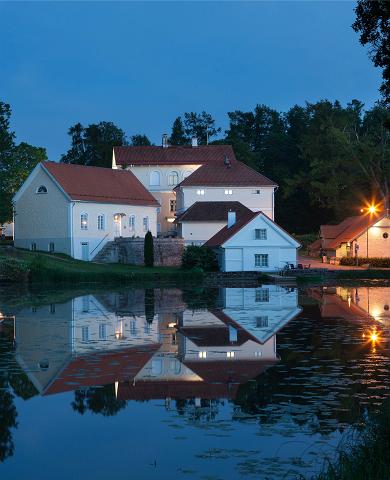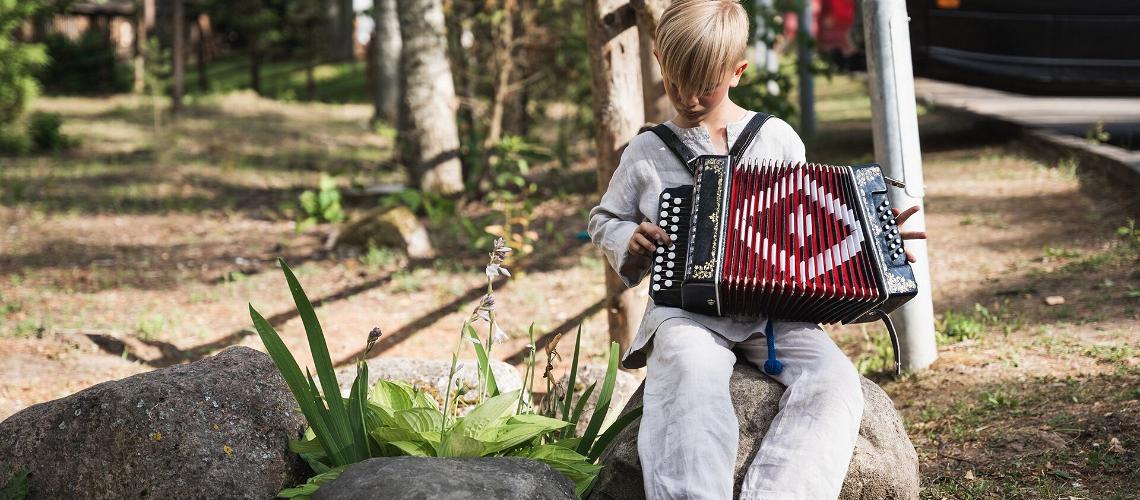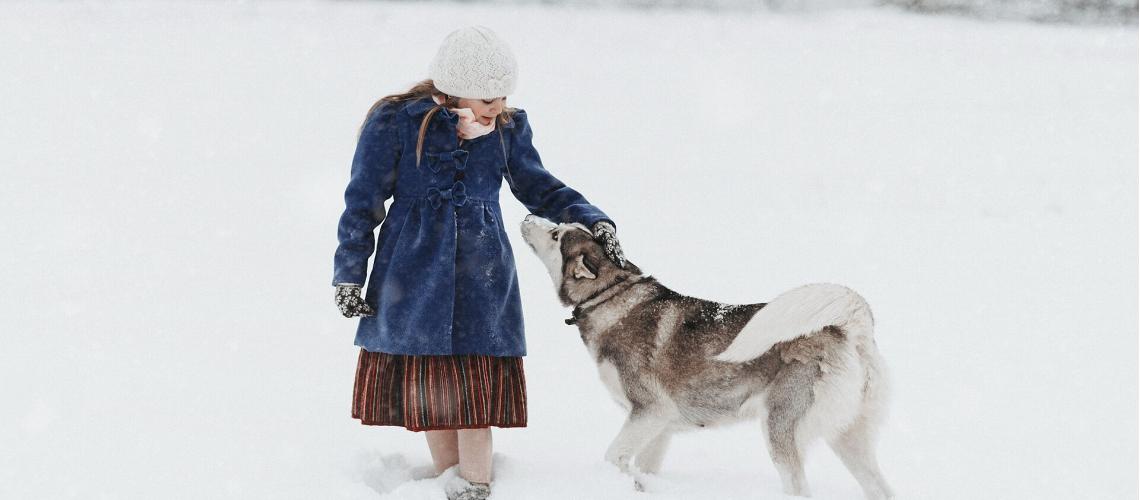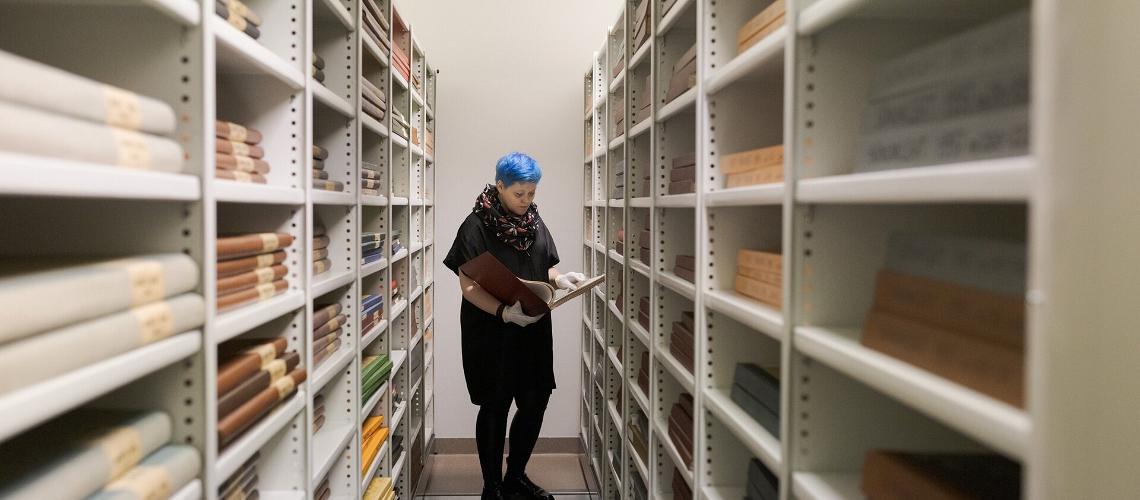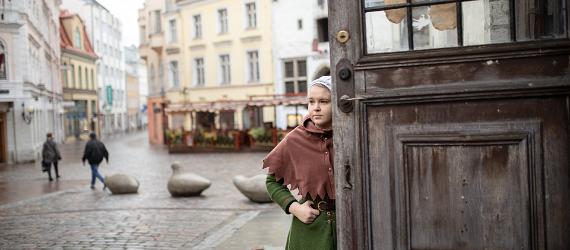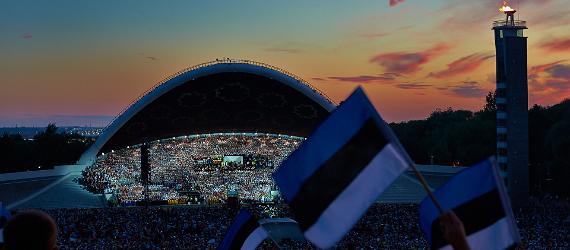The Estonian language is spoken by roughly 1.1 million people. Unlike Swedish, Latvian, and Russian, Estonian is a Finno-Ugric language. This puts it in the same linguistic family as Hungarian, Finnish, and several other small languages. Most words may look to be from a different planet but sound mesmerizingly melodic.
Estonia has one of the highest literacy rates in the world at 99.8%. Nearly everyone speaks at least one foreign language, usually English or Russian, but many also speak Finnish, German, or Swedish. This makes getting around Estonia easy, though an aitäh (thank you) is always appreciated!
Estonian is a Finno-Ugric language, so it can be difficult for English speakers to find familiar cognates or grammatical structures. This is part of the reason that Estonian is an especially tricky language to learn.
Here are a couple of phrases that might look like English but actually have very different meanings, making them false cognates.
- pure mind— In English, you could read this as a worthwhile mental state; however, in Estonian, this means "bite me" and not gently either, but in a rough way like dogs and wolves do.
- hell hunt — Speaking of wolves, this might look like some kind of infernal chase to English speakers, though it actually means "gentle wolf" in Estonian.
Long vowels and very long vowels
Estonian vowel sounds are often a tripping point for language learners. Plenty of languages differentiate between short and long vowels, but Estonian has vowels that are short, long, and extra-long.
Each of these words has four of the same vowels together:
- jää-äär (edge of the ice)
- kuu-uurija (moon explorer)
- töö-öö (work night)
While these words might not be so hard to say by themselves, it can get tricky when you have a phrase like kuuuurijad tööööl jäääärel, which means "lunar researchers at work on the edge of the ice during the night."
Making words in Estonian
As with German, Swedish, and Finnish, Estonian words are often formed by "stacking" different word parts onto each other. For example, the word fotokunstnik is made of two words put together foto (photo) and kunstnik (artist).
Here are some more interesting examples:
- Sigakallis — Word-for-word, this translates to mean "pig-expensive". The word kallis means "expensive" and the pig part makes it more intense. However, we haven't figured out what pigs and high prices have to do with each other.
- Laiskvorst — Whether it's a child, friend, or co-worker, this word refers to a lazy person. However, there's another layer to the word since it translates to "lazy sausage." So you could call someone laisk (lazy) or you could say sa oled üks igavene laiskvorst (you are a really lazy person) just for a bit more flavor.
- Valevorst — Here's another sausage-based word: valevorst literally means a "lie-sausage" as vale means "lie". It is a more interesting way to call out someone for telling an untruth.
Lengthy words and tongue-twisters
- Kuulilennuteetunneliluuk — This is probably one of the most famous weird words Estonian has to offer with the hyper-precise meaning of "the hatch a bullet flies out of when exiting a tunnel." The word's specificity is impressive enough, but it also has the distinction of being a palindrome, so it's the same thing read backwards and forwards.
- Sünnipäeva nädalalõpupeo pärastlõunaväsimus—At a whopping 42 letters, this monster phrase means "the tiredness one feels on the afternoon of the weekend birthday party." If nothing else, it shows off how incredibly precise the Estonian language can be.
- Kummikutes kummitus kummitas kummutis—Although this is a whole sentence rather than a word, it shows just how strange speaking Estonian can be. This tongue-twister means, "A ghost with rainboots haunted the chest of drawers."
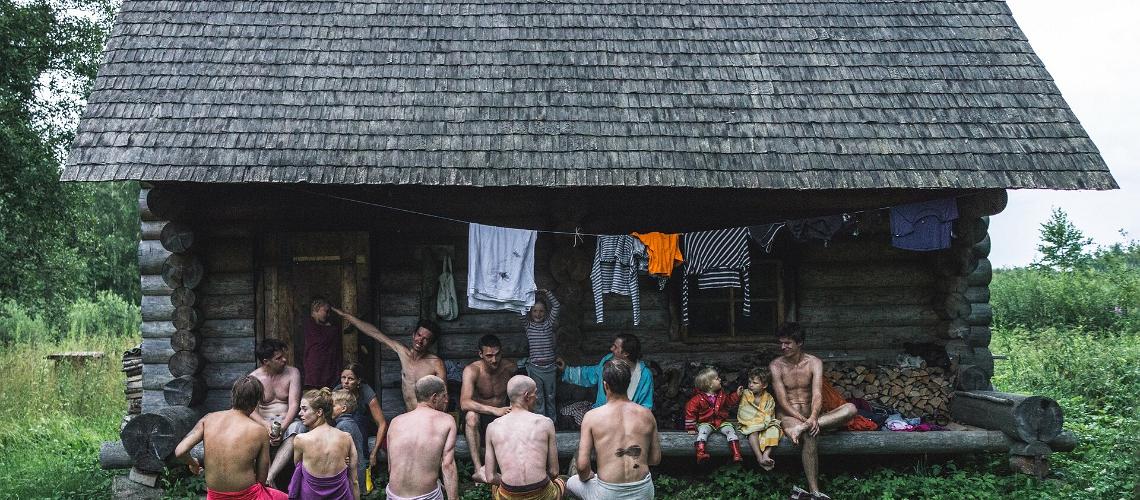
Estonians open up in the sauna, leading to the common refrain, "The women in the sauna were talking."
Photo by: Tõnu RunnelFun facts about the Estonian language
- Estonian uses the Roman alphabet, like English, with the addition of letters like õ, ä,ö, and ü.
- Estonian has 14 noun cases along with short and long consonants and vowels, which explains why it has been named the world's 5th toughest language to learn for English speakers after Japanese, Chinese, Korean, and Arabic.
- Estonian doesn't have a distinct future tense, and nouns don't have gender, leading to the old joke that Estonians have no sex and no future.
You can learn the 100 most important phrases for free with Lingvist's Essential Estonian online course or visit Study in Estonia's website to learn basic Estonian vocabulary to help you get around during your visit.













